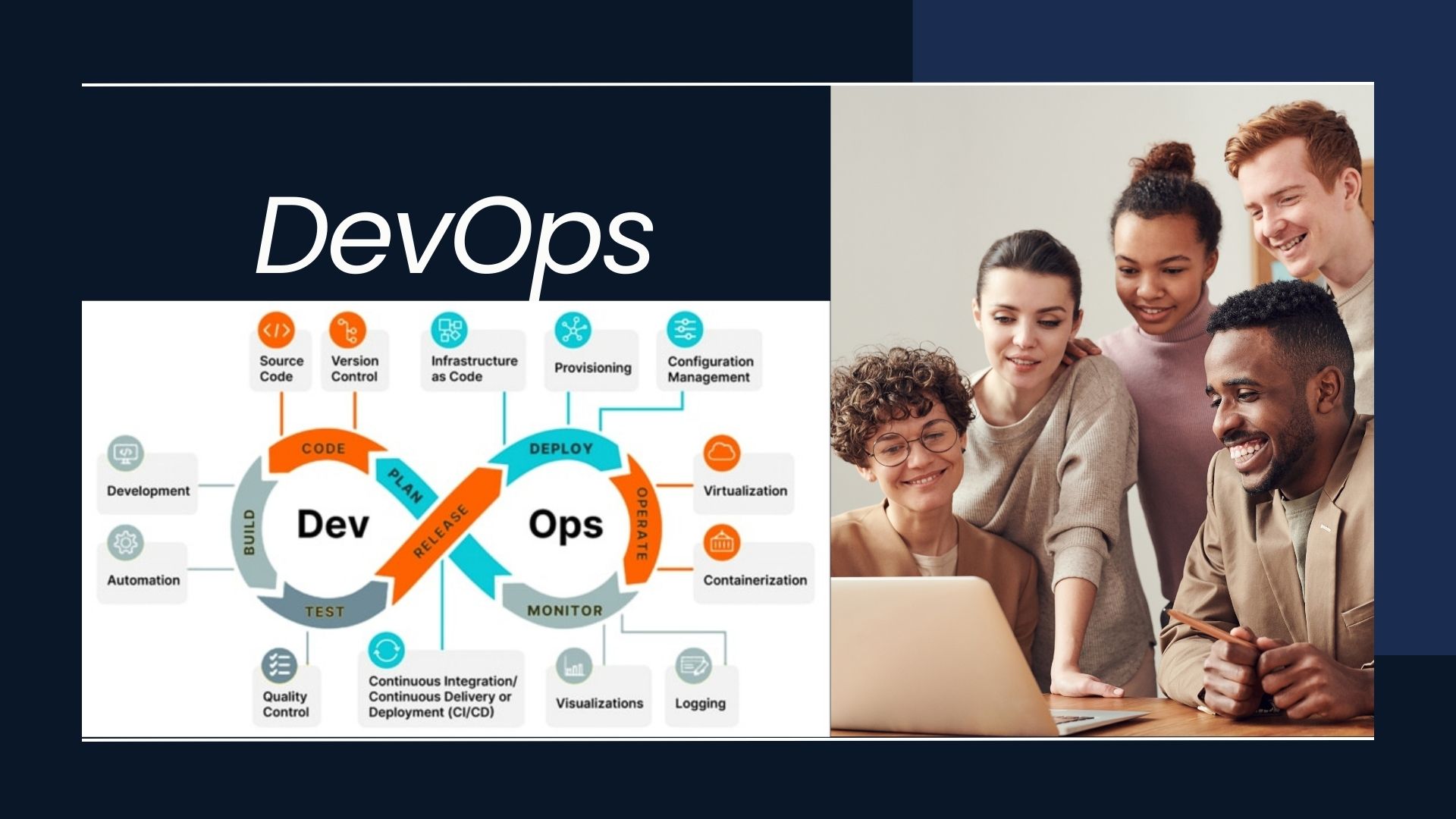DevOps is a cultural and professional movement that emphasizes collaboration between software development (Dev) and IT operations (Ops). Traditionally, these two teams worked in silos, leading to miscommunication, delays, and inefficiencies. DevOps breaks down these barriers, fostering a culture where developers and operations teams work together throughout the entire software development lifecycle (SDLC).

Key Principles of DevOps
DevOps is built on several foundational principles that promote efficiency and collaboration between development and operations teams. Here’s a brief overview of these key principles
Collaboration
DevOps emphasizes breaking down the silos between development and operations teams. This collaborative approach encourages open communication and shared responsibility, enabling teams to work more effectively together.
Automation
One of the core tenets of DevOps is the automation of repetitive tasks. By automating processes such as testing, deployment, and infrastructure management, teams can reduce manual errors and speed up workflows, leading to increased efficiency.
Continuous Integration and Continuous Deployment (CI/CD)
CI/CD practices allow teams to integrate code changes frequently and deploy them automatically. This not only accelerates the release cycle but also ensures that new features and updates are delivered with minimal risk.
Monitoring and Feedback
Continuous monitoring of applications and infrastructure is crucial for identifying issues and optimizing performance. Feedback loops enable teams to gather insights from users and operational metrics, driving continuous improvement in both products and processes.
Infrastructure as Code (IaC)
IaC is a practice that allows teams to manage and provision infrastructure through code, promoting consistency and repeatability. This approach simplifies the deployment process and reduces the chances of configuration errors.
Benefits of DevOps
DevOps offers numerous advantages that enhance the software development and delivery process. Here are some key benefits:
Faster Time to Market
By streamlining processes and improving collaboration, DevOps enables organizations to deliver new features and updates more rapidly, gaining a competitive advantage in the market.
Improved Quality
With automated testing and continuous integration, DevOps helps catch bugs early in the development process, resulting in higher quality software and a better user experience.
Greater Efficiency
Automation of manual tasks allows teams to focus on strategic initiatives and innovation, enhancing overall productivity within the organization.
Enhanced Customer Satisfaction
Faster delivery and improved quality lead to better products, resulting in increased customer satisfaction and loyalty.
Key Skills Required for DevOps
1. Programming and Scripting
- Understanding languages such as Python, Ruby, or Bash is crucial for automation and development tasks.
2. Familiarity with Operating Systems
- Proficiency in Linux is essential, as many DevOps tools and environments run on this platform. Basic knowledge of Windows Server can also be beneficial.
3. Version Control Systems
- Mastery of version control tools like Git is vital for tracking changes in code and collaborating with other developers.
4. Cloud Computing
- Knowledge of cloud platforms like AWS, Azure, or Google Cloud is important for deploying applications and managing infrastructure.
Essential DevOps Tools
1. CI/CD Tools
- Familiarize yourself with tools such as Jenkins, GitLab CI, or CircleCI for automating integration and deployment processes.
2. Configuration Management
- Learn tools like Ansible, Chef, or Puppet to manage and automate server configurations.
3. Containerization
- Understand Docker for creating and managing containers and Kubernetes for orchestration.
4. Monitoring and Logging
- Tools like Prometheus, Grafana, and the ELK Stack are crucial for monitoring application performance and analyzing logs.
Key Practices in DevOps
1. Continuous Integration and Continuous Deployment (CI/CD)
- Implementing CI/CD practices allows for frequent code integration and automated deployment, enhancing delivery speed and reliability.
2. Infrastructure as Code (IaC)
- Manage infrastructure using code to improve consistency and reduce configuration errors.
3. Automated Testing
- Incorporate automated testing into the development process to catch issues early and ensure code quality.
4. Collaboration and Communication
- Foster a culture of collaboration between development and operations teams to enhance overall efficiency.
Steps to Become a DevOps Engineer
1. Education and Training
- Consider pursuing a degree in computer science or a related field. Look for online courses and certifications focused on DevOps practices and tools.
2. Gain Hands-On Experience
- Work on personal projects, contribute to open-source initiatives, or seek internships to gain practical experience in DevOps.
3. Build a Strong Portfolio
- Showcase your projects and skills through a portfolio. Include examples of CI/CD pipelines, automation scripts, and infrastructure setups.
4. Engage with the Community
- Join forums, attend meetups, and participate in discussions to network with other professionals and stay updated on industry trends.
Conclusion
Becoming a DevOps engineer requires a blend of technical skills, hands-on experience, and a collaborative mindset. By understanding the core principles of DevOps and following the outlined steps, beginners can build a strong foundation for a successful career in this dynamic field. Embrace continuous learning and stay adaptable to thrive in the evolving landscape of software development and operations.



One thought on “A Beginner’s Guide to Becoming a DevOps Engineer: Major Steps and Tips”
wow this is very lovely, thanks it’s so detailed.